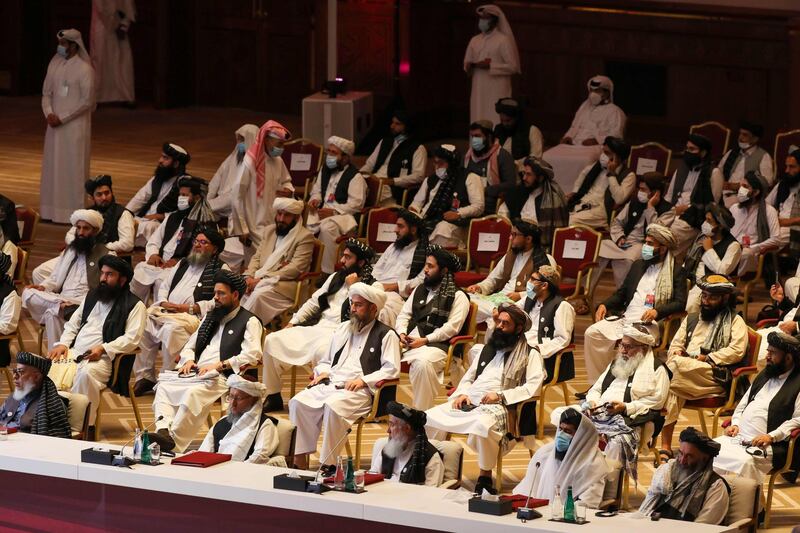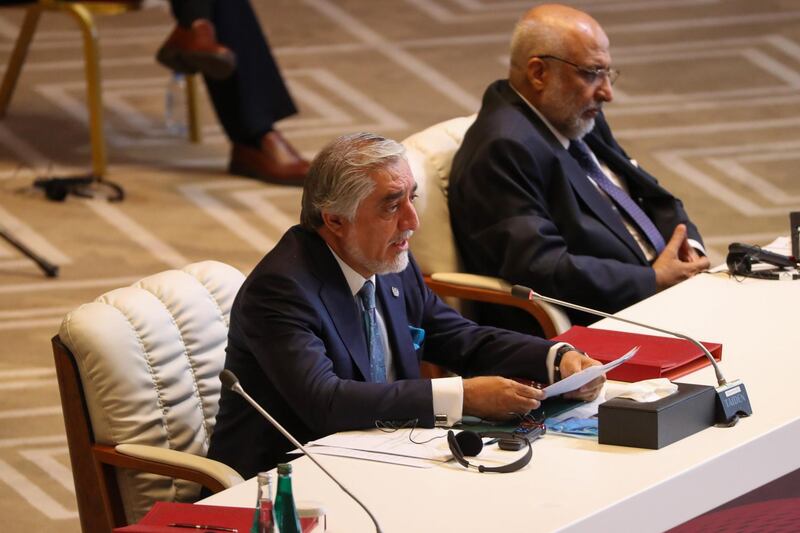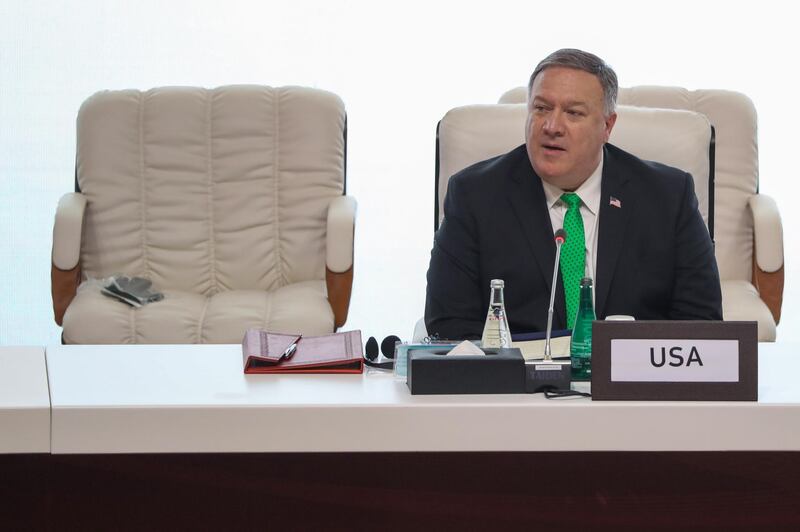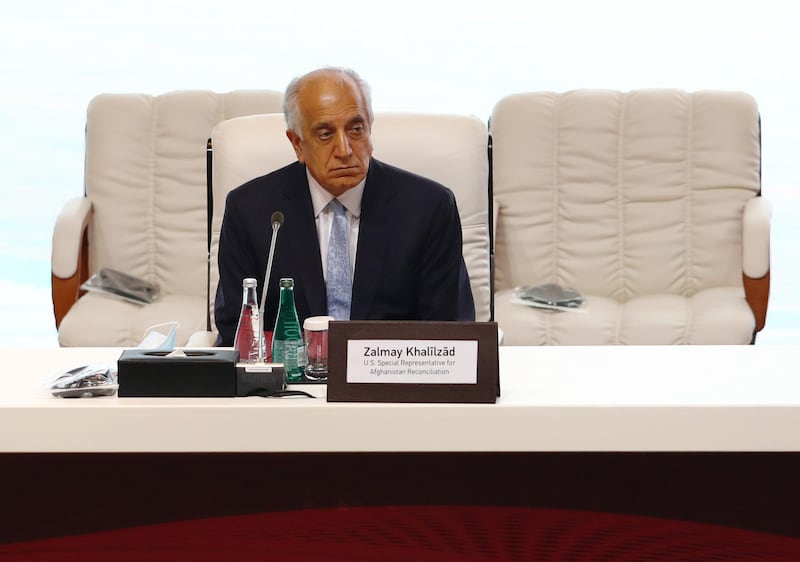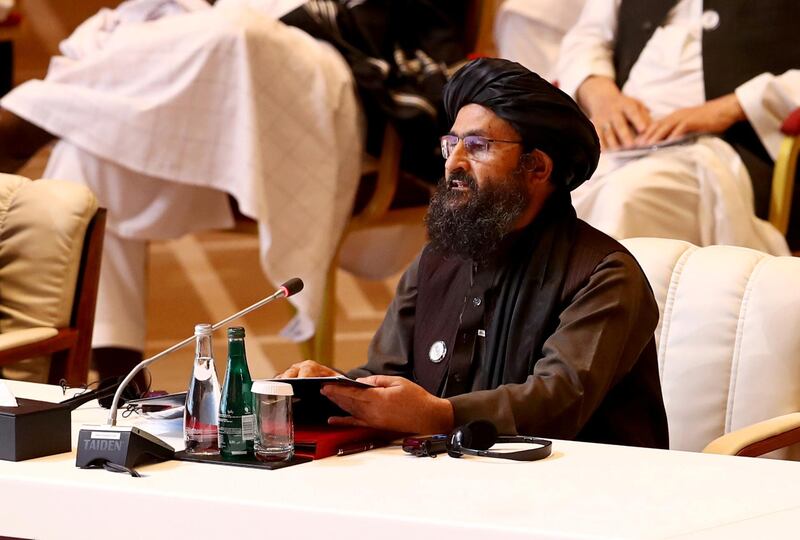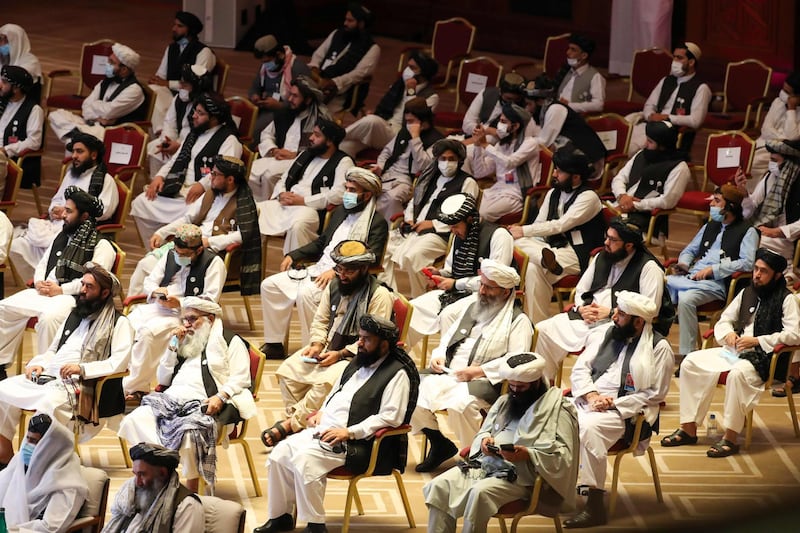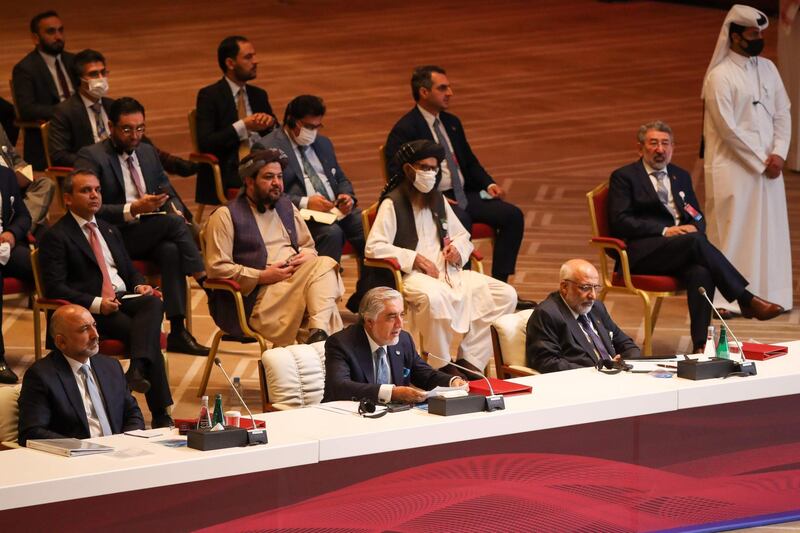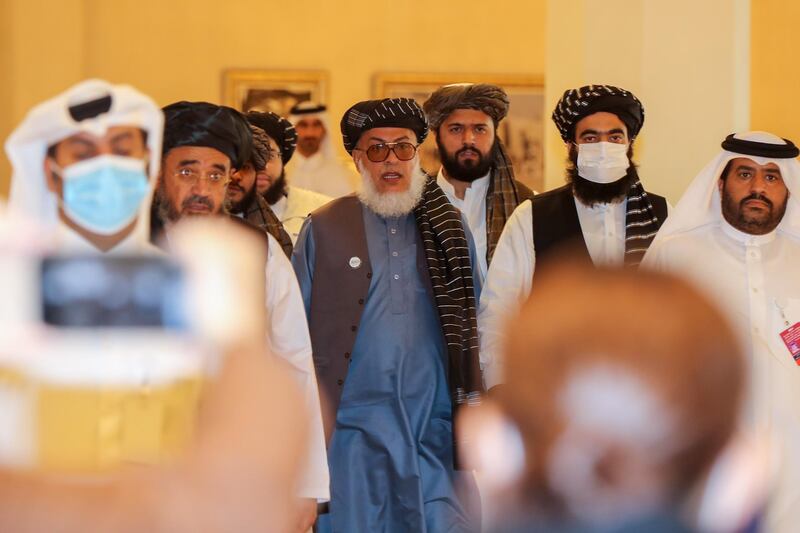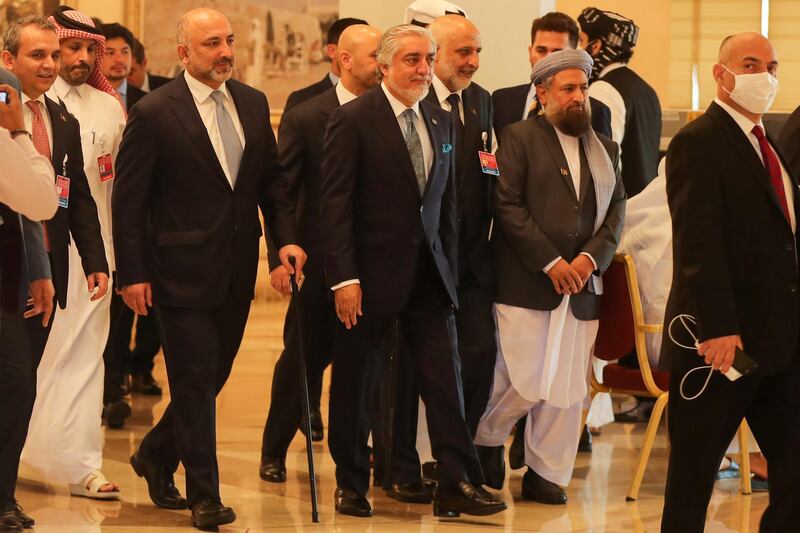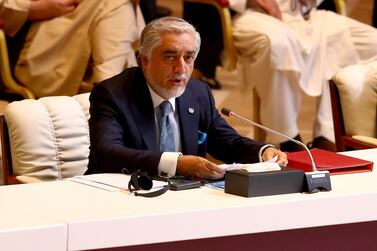Afghanistan witnessed a significant increase in Taliban attacks since the first ever direct peace negotiations between the insurgents and the government began in Doha on Saturday, according to an Afghan security report.
The Ministry of Defense said on Sunday that the Taliban carried out attacks in 19 of Afghanistan's 34 provinces in the previous 24 hours. “There has been no reduction in violence by the Taliban,” it said. “Afghanistan's defence and security forces are defending their lives within the framework of active defence and responding to enemy attacks.”
"With the start of intra-Afghan talks we were expecting the Taliban to reduce the number of their attacks, but unfortunately their attacks are still going in high numbers," Fawad Aman, a spokesman for the Afghan defence ministry, said.
The increase in violence was noted by the government negotiating team in Doha, with the head of the delegation, Abdullah Abdullah, repeating his plea from the first day of the talks and calling on the Taliban to implement a ceasefire.
“There should be a significant reduction in violence before anything,” Dr Abdullah, the chairperson of the Afghan High Council for National Reconciliation, said on Sunday.
“We need to see a humanitarian ceasefire and then a permanent ceasefire in Afghanistan. Victory through war is not possible, but with negotiation, both sides can be winners and there will be no loser.”
No meeting between the two has been reported by either side in Doha on Sunday, but Qatar's state news agency said teams led by Taliban's political chief Mullah Abdul Ghani Baradar and Dr Abdullah had met the Qatari emir.
An Afghan intelligence official attributed the increase in violence to the peace talks.
"The Taliban wants an upper hand in the negotiation table. They also want to put further pressure on the government," the official at Afghanistan's National Directorate of Security told The National.
“They also want to display their capacity [for attack] to the international community. They want to show that they control a large part of the county by attacking different parts because they have been claiming they hold 70 per cent of the country,” he said.
The talks are being held as part of a peace deal between the United States and the Taliban that included the exchange of prisoners between the government and insurgents and a gradual withdrawal of US and other foreign troops assisting Afghan forces.
Despite agreeing to the peace talks, the Taliban stepped up their attacks after the deal was signed on February 29. Afghanistan's northern provinces, which were previously considered relatively safe, have seen a big increase in attacks.
"The violence from Taliban has been on a steady rise since they signed a deal with the US," Munir Farhad, spokesman for the governor of Balkh, told The National. The province has been seeing four attacks a day on average in recent months, compared with one a day previously, he said.
“Seven of the 14 districts of Balkh are under high alert. Every night there is one incident on Afghan forces by the Taliban.”
Mr Farhad said he suspected that many of the 5,000 Taliban prisoners released by the government had resumed fighting. “They haven’t kept their promise,” he said.
